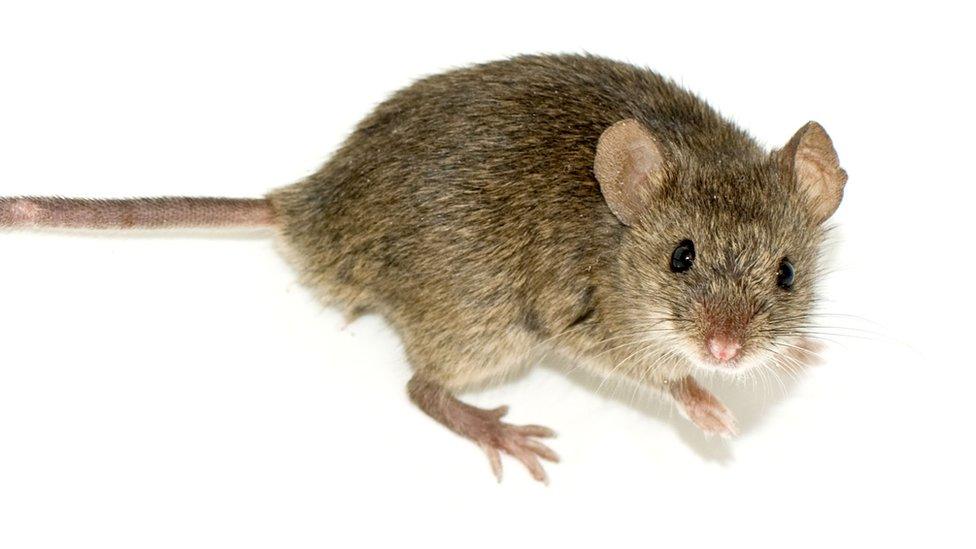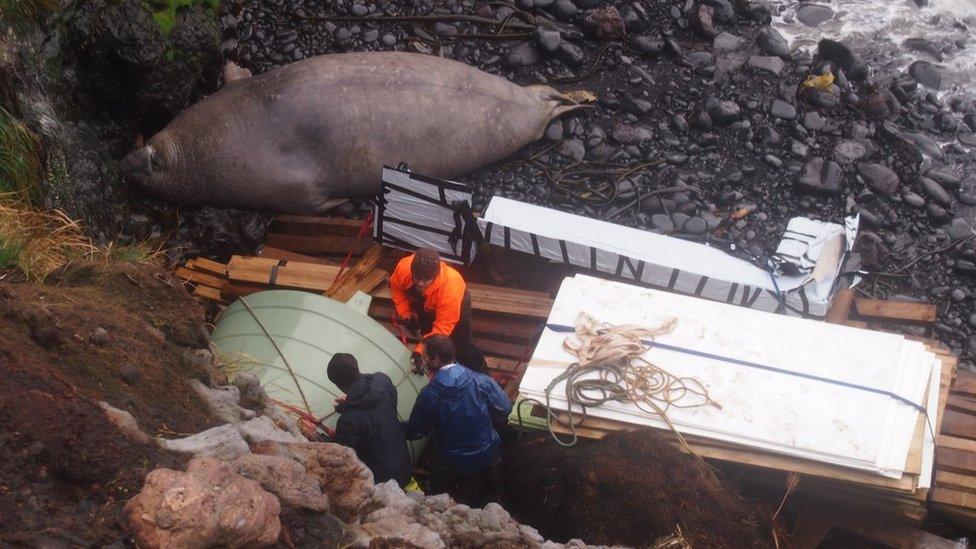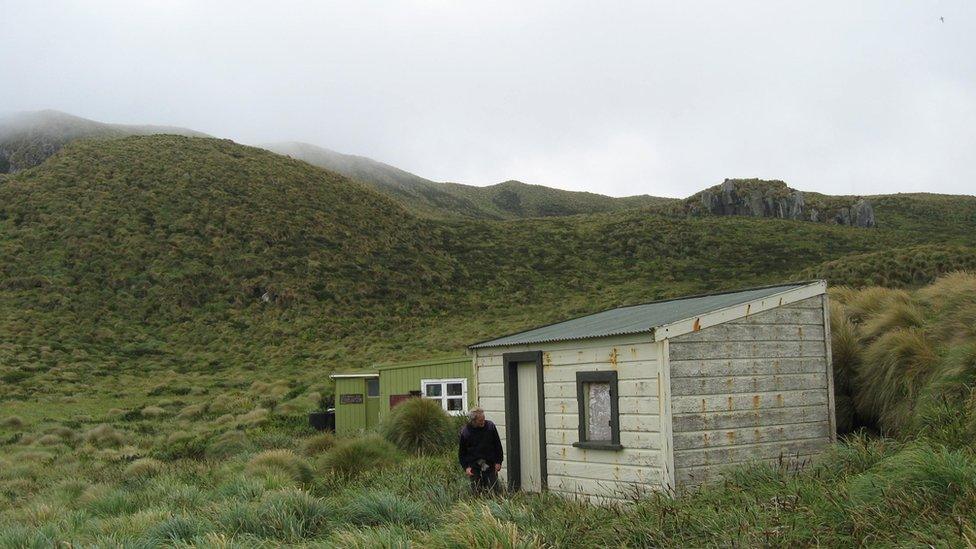Global implications for NZ 'Million Dollar Mouse' success
- Published

Know your enemy: New Zealand has eliminated 200,000 mice from one of its remote islands in a bid to save other species
New Zealand has declared victory in its bid to eradicate mice from a remote group of islands, in a project that could spell hope around the world for species threatened by predators introduced by man.
It's taken five years to clear the volcanic Antipodes Islands of the 200,000 rodents that preyed on bird chicks and eggs, invertebrates, and plants, the New Zealand Herald reports, external.
The campaign, dubbed "Million Dollar Mouse", led to what's been described as one of the most sophisticated pest eradications project ever carried out in the world.
While the islands can hardly be more remote, being hundreds of kilometres off the country's southern tip, experts are seeing it as a major step in the country's battle to eradicate predators introduced by man, which have brought chaos to New Zealand's delicate ecosystem.
"The Subantarctic islands are remote, but the role they play in global conservation as the home for so many unique species can't be overstated," project manager Stephen Horn said, external.

Project workers had to haul everything they needed ashore, including this water tank
Crowd-funded campaign
Million Dollar Mouse, part-funded by a public crowd-funding campaign, aimed to continue the work of other eradication projects around New Zealand, and involved a team setting up camp on the islands, air drops of pesticides from three helicopters, culminating in a month-long search involving trained dogs for any remaining pests, Radio NZ says, external.
According to a Stuff.nz feature on the islands, external, the mice likely arrived on ships belonging to sealers, and drove at least two local species to extinction. If the project hadn't tackled the rodents they "would have spelled doom for many of the species there," the feature said.
"The project was done to benefit the whole ecosystem there," Mr Horn told Stuff, "These islands are high value, they're World Heritage sites". Animal life on the Antipodes Islands include bird species not found anywhere else.
The victory was hard won, with original island team member Kimberley Collins recalling, external how everything the team needed had to be hauled onto the inhospitable island from a 25 metre (82 feet) boat, all the time avoiding a large elephant seal.
Even a kitchen sink for the island's hut had to be floated ashore; and the hut itself had to be stabilised after falling down a hill in a landslip, Ms Collins said.

The only shelter on the remote, cold and windy Antipodes Island
Tiny islands, global implications
New Zealand's government has pledged to rid the country of all invasive species by the year 2050, and Million Dollar Mouse has now become a model for this hugely ambitious programme to clear predators island-by-island.
The Predator Free 2050 project, external has been backed by both government and conservationists alike, and seeks to rid the whole country of stoats, rats and possums within the next three decades.
There are some who think the project is either too ambitious, or is tantamount to "ecological xenophobia", Ed Yong wrote in a feature for The Atlantic website, external.
However, others say that new ideas in traps, poisons and genetic tweaking of predators' breeding habits could prove successful, and could be exported to wherever other countries are experiencing similar problems.
The country's growing experience in eliminating large populations of pests has now become a standard for dealing with the problem. "It's had more successful pest eradication projects on islands than almost any other country," Stuff's Charlie Mitchell, external writes.
Reporting by Alistair Coleman
Next story: Smokers fail to respond to UAE 'sin tax'
Use #NewsfromElsewhere to stay up-to-date with our reports via Twitter, external.